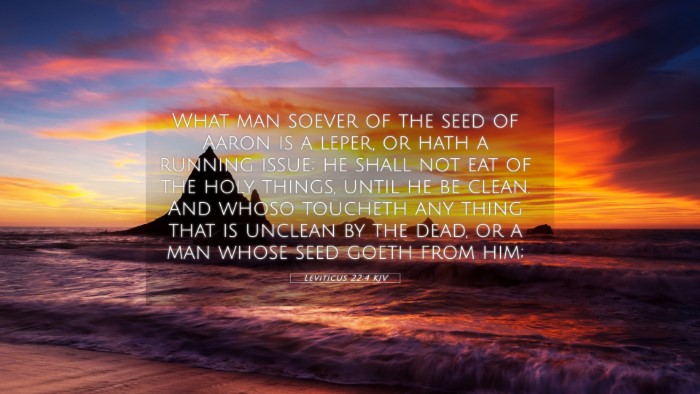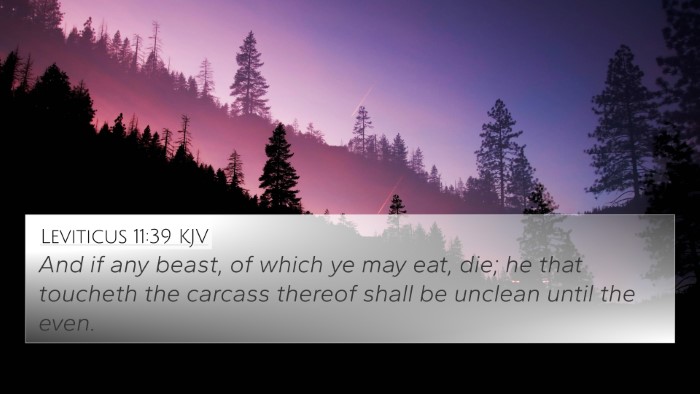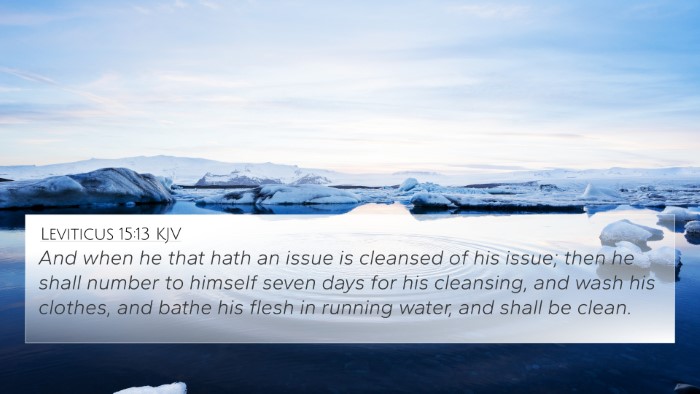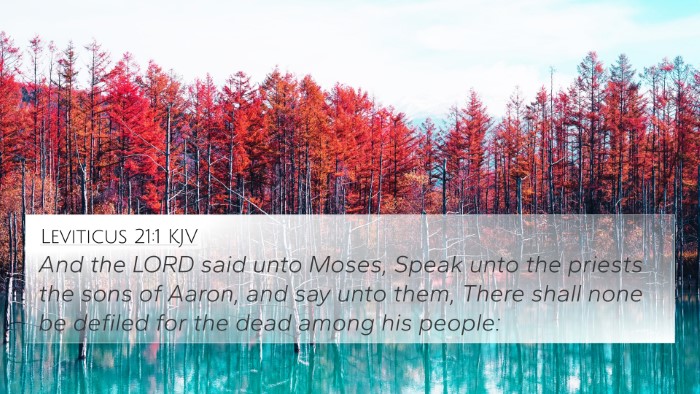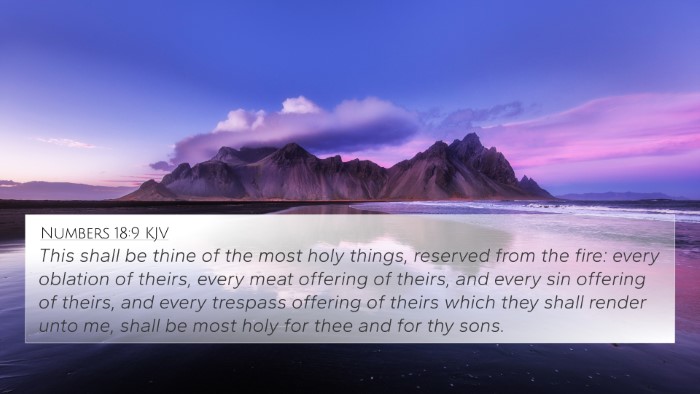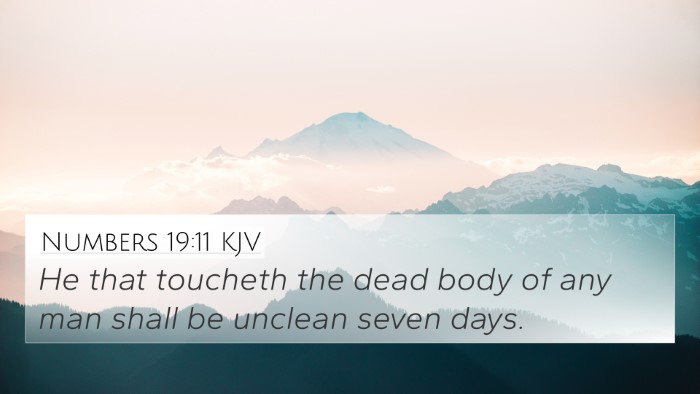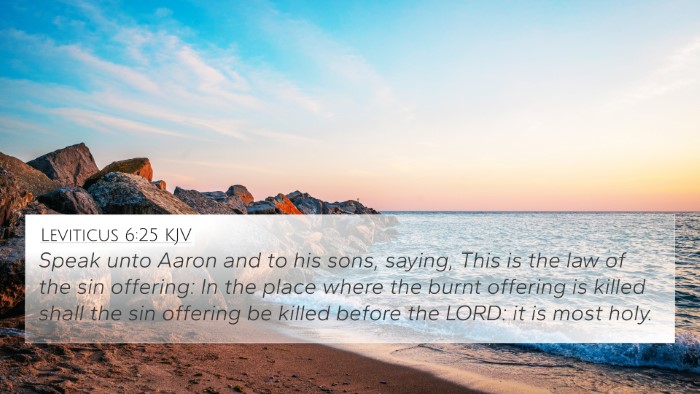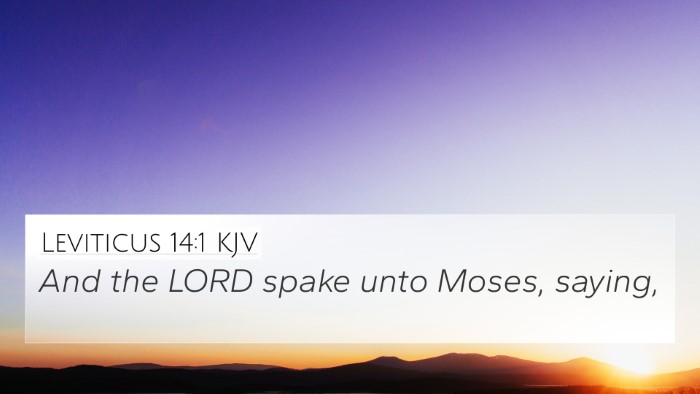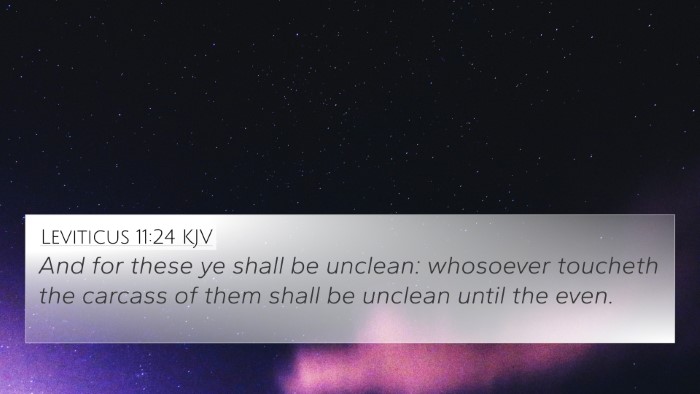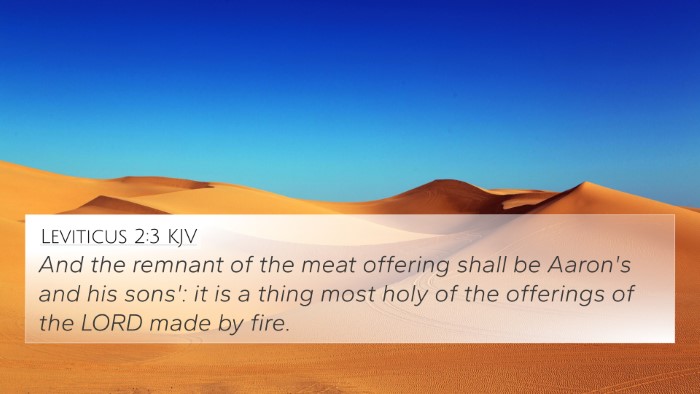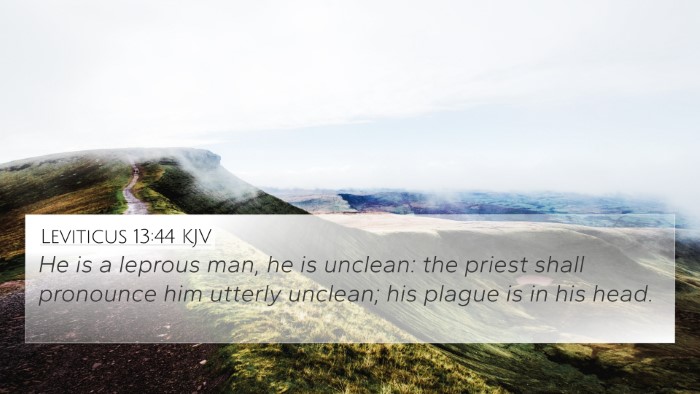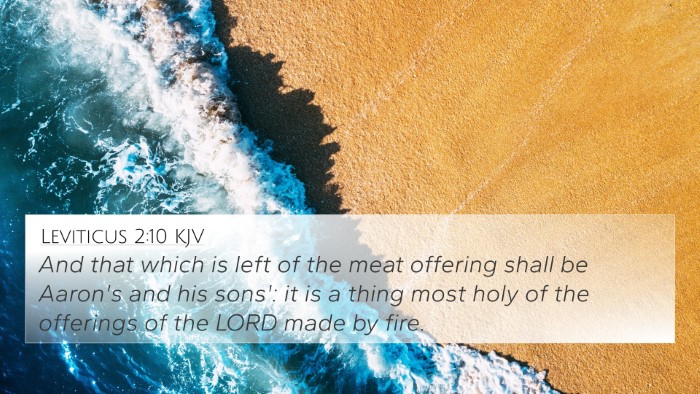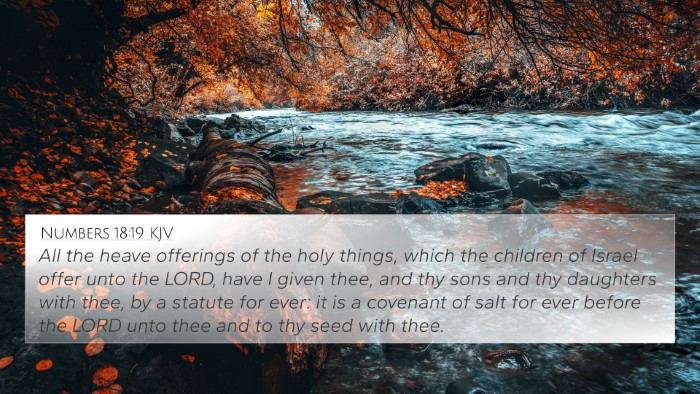Understanding Leviticus 22:4
Bible Verse: Leviticus 22:4 - “The man of the seed of Aaron who is a leper or has a discharge shall not eat of the holy things until he is clean. And whoever touches anything made unclean by a corpse, or a man who has had an emission of semen.”
Summary of Meaning
The verse emphasizes the need for ceremonial cleanliness when dealing with holy things, particularly in the context of the priesthood. The priests, being representatives before God, must maintain a state of purity. This requirement is rooted in the broader laws given to Moses regarding holiness, calling for a distinction between the clean and the unclean.
Insights from Commentaries
- Matthew Henry: He highlights the strictness of the law concerning the priesthood and indicates that the sanctity of God's worship must be preserved by maintaining purity. In his view, this reflects God’s holiness and the seriousness of approaching divine matters.
- Albert Barnes: Barnes focuses on the concept of ceremonial uncleanness, explaining that certain conditions, such as leprosy or contact with death, render a person unfit for sacred duties. This relates to the broader theme of God's people being distinct and upright before Him.
- Adam Clarke: Clarke explains the significance of the priest’s role, noting that their cleanliness directly affected their ability to perform sacred rituals. He connects this with the idea of spiritual cleanness, symbolizing the need for all believers to seek purity in their walk with God.
Cross-Referencing Biblical Texts
Leviticus 22:4 can be linked to various themes found throughout the Bible. Here are some notable cross-references:
- Exodus 30:20-21: Discusses the necessity of washing to avoid death while serving at the altar.
- Leviticus 7:20: Delivers instructions on the consumption of holy offerings, emphasizing the necessity of purity.
- Numbers 19:11-13: Relates to the laws concerning touching the dead, reinforcing the theme of cleanliness and purity.
- Matthew 23:25-26: Jesus rebukes the Pharisees for outward cleanliness while neglecting inner purity.
- 1 Peter 1:15-16: Calls believers to holiness, echoing the Old Testament foreshadowing.
- Revelation 21:27: Speaks of the New Jerusalem where nothing unclean shall enter, emphasizing God’s holiness in eternity.
- Hebrews 10:22: Encourages believers to draw near to God with a true heart in full assurance of faith, reflecting a state of cleanliness akin to Levitical standards.
Thematic Connections
This verse not only addresses ceremonial regulations but also reinforces the overarching biblical theme of holiness. Below are thematic links that further expand our understanding:
- Holiness: Throughout the Bible, God demands that His people be holy as He is holy, an idea reiterated in both the Old and New Testaments.
- Cleanliness vs. Uncleanness: The dichotomy presented in Leviticus persists, affecting worship practices and illustrating spiritual truths about sin and righteousness.
- Priestly Duties: The role of the priest is central in both the Old and New Testaments, as Jesus is seen as our High Priest, navigating the themes of sacrifice and purification.
- Community Standards: The holiness codes often cascade into community behavior, where individual purity contributes to corporate holiness.
- God's Presence: The requirement for cleanliness reflects the sanctity of engaging in the presence of God and the need for reverence.
Practical Applications
Understanding the implications of Leviticus 22:4 can lead to significant applications in a believer's life. Key points include:
- Personal Reflection: Engage in self-examination to ensure your spiritual life reflects God’s holiness.
- Community Standards: Encourage practices within your church that promote purity and holiness among church members.
- Understanding Grace: Recognize how Christ fulfills the law and provides a means for cleanliness through His sacrifice.
- Teaching Holiness: Use this verse as a foundation for teaching about the importance of spiritual cleanliness in one’s life.
Conclusion
In summary, Leviticus 22:4 serves as a vital reminder of God’s call for holiness and purity, particularly in worship contexts. By examining its connections with other Biblical verses and appreciating its themes, believers can better understand their relationship with God and the importance of living out holiness in their daily lives.

